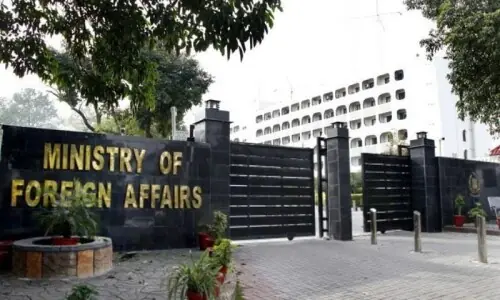S.G. Jilanee enumerates the causes of Bengal’s alienation, recalling that not all was lost in terms of the human spirit even in that time of mayhem
December every year rekindles memories of the past, when Pakistan had its eastern wing; some fond and sweet, others bitter and horrid. For those who lived among the people there for years, it was like a paradise turned into hell and lost.
Because East Pakistani Muslims did not share the same seething hatred for Hindus with their West Pakistani counterparts, the latter perceived them as being under the influence of Hindus in their socio-political outlook. This was the view, perhaps, behind Quaid-i-Azam’s fatal error to declare “Urdu, and Urdu alone", the sole national language of Pakistan in 1948.
A crack had been unwittingly caused. But others, instead of cementing it went on to widen it further till nothing could hold us together. The second major contribution to widen the gulf was the Dhaka police superintendent, Masood Mahmood’ s opening of fire that killed four protesting students on February 21, 1952.
The saga continued through the Agartala Conspiracy Case, Awami League’s Six Points and the 1970 elections. British officers had learnt local languages of India and interacted with the people when India was a British colony. But West Pakistani officers never made any attempt to learn the language of their Bengali compatriots and fraternise with them to win their hearts and minds. Worse, even Biharis resident in East Pakistan identified themselves with West Pakistanis.
The Rubicon was crossed when Yahya Khan reneged on calling the National Assembly Session on March 1, 1971. Between then and March 25 both sides played hide-and-seek. Finally the die was cast. West Pakistani troops attacked East Pakistan as invaders, rather than as pacifiers. They treated even those Bengalis, who initially came to welcome them with garlands, as insurgents. As a result the trickle of goodwill that came their way dried up and would-be allies became enemies.
Meanwhile on the political front instead of seeking reconciliation, Awami League was outlawed. The Bengali 'resistance army', Mukti Bahini, played havoc especially with communications. They disrupted rail traffic and sank river craft carrying food and other supplies across the country. Bomb blasts became daily affairs in urban areas. To confound the situation Biharis also weighed in with the army, shared its repressive acts and enlisted in Jamaat-i-Islami’s Al Shams and Al Badr militias to fight the guerillas.
Therefore, after Bangladesh won freedom, nemesis descended on pro-Pakistan elements, Bengali and Bihari alike. Seething with revenge Mukti Bahini chopped Maulvi Farid Ahmad, MNA, to pieces and beat Pakistan National Assembly speaker Fazlul Qadir Chaudhry mercilessly, though both were Bengalis. But for Biharis it was sheer hell. Frustrated at being unable to settle scores with Pakistan Army, Mukti Bahini unleashed all its rage at Biharis with torture, eviction from their homes, rape and outright murder—outrageous crimes that they accused the army of having committed against Bengali civilians.
However, Bengalis also demonstrated that they could return cruelty with cruelty and kindness with kindness. For example, following liberation when Mukti Bahini was running berserk after Biharis’ blood, many Bengalis protected many Biharis, both officials and others, who had fraternised with them. I, for one, travelled from Chittagong to Dhaka by road in February 1972 with a Mukti Bahini activist who was the son of a Bengali friend.
Bengalis gave the most sacrifices for Pakistan. They were the only people to observe the Direct Action Day in 1946 and gave blood in the “Great Calcutta Killing” that erupted in consequence. Next, they offered a seat from their quota to Liaquat Ali Khan in the Constituent Assembly, even though having come from Karnal in Punjab in all fairness he should have claimed a seat from the Punjab quota. Finally they surrendered their majority status and agreed to parity for a united Pakistan.
Had these gestures been reciprocated by West Pakistan things would have been quite different today.

































